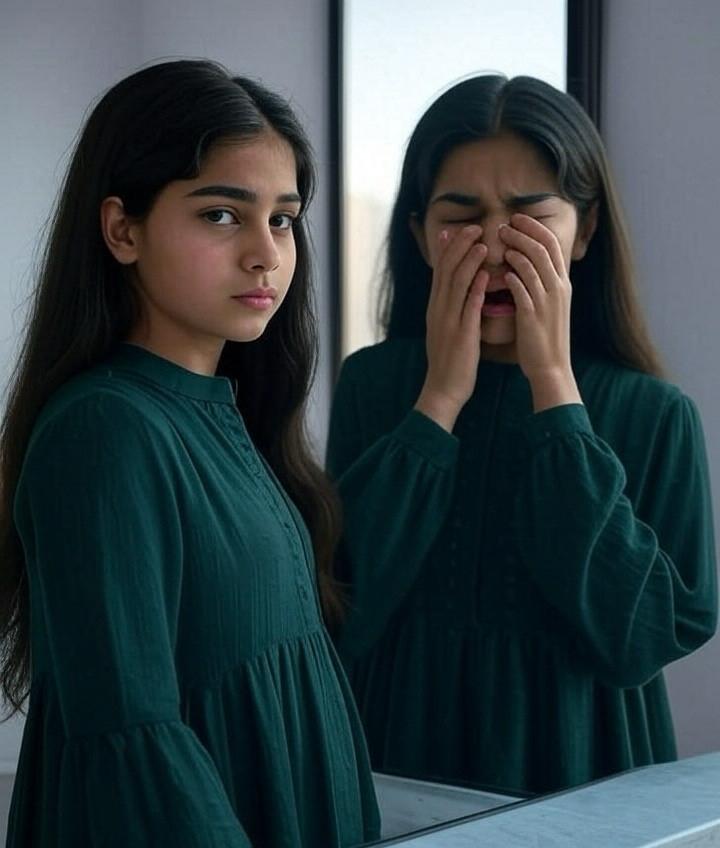
To the world, she is perfectly ordinary—perhaps even enviable. A steady voice on the phone, a calm presence at family gatherings, a dependable colleague at work, a pleasant neighbor. She carries no signs of conflict or despair. Her house runs smoothly. Her job gets done. She never raises her voice. She smiles when spoken to. But inside, Wafa is barely holding it together.
The pressure in her life isn’t the kind that’s easy to describe. She doesn’t complain about the housework, although it never ends. She doesn’t protest the responsibilities that come with her job or her family. She often tells herself, This is normal. Everyone does it.
What Wafa lives with is something else entirely—a pressure that doesn’t come from outside expectations but from the exhausting act of trying to feel normal. She is not overwhelmed by what she does. She is overwhelmed by what she suppresses.
“The weight of my schedule does not crush me,” she says quietly, “but by the constant effort to stay calm when my body is screaming inside.”
The Pressure Behind the Calm
Every morning, before the house wakes up, Wafa gives herself a few moments in silence. Not to enjoy peace, but to collect her strength. She knows that once the day begins, she must perform a role she cannot step out of.
She must be composed—even when her nerves are raw. She must laugh—even when her chest is tight. She must focus—even when her hands tremble slightly behind her back.
Also Read: "Please Leave, There Are Cameras" — TikToker Sana Yousaf’s Final Plea Before Being Shot
“Sometimes I’m sitting with my family, smiling and talking, while I’m barely able to breathe properly,” she confesses. “But how do I explain that without alarming them? And if I do… will they even understand?”
This is the kind of pressure no one talks about. Not the pressure to perform tasks, but the pressure to perform stability. To appear unbothered. To seem emotionally balanced. To not disrupt the flow of life around her.
A Society That Likes the Conversation—From a Distance
We live in a society that claims to celebrate conversations around mental health. Instagram posts encourage self-care. Workshops are organised, campaign trends. But mention that someone is taking medication for anxiety or depression, and the silence grows thick. We praise awareness, but judge reality.
“If I ever said I was on medication,” Wafa says with a dry smile, “there would be long pauses and awkward glances. Questions behind closed doors. Whispers about whether I’ve gone ‘too deep into things.”
The same people who share articles about emotional well-being are often the ones who raise eyebrows when someone is genuinely struggling. So Wafa doesn’t tell anyone. She manages her symptoms privately, sometimes succeeding, failing. And when she fails, she stays quiet. Because asking for space, or softness, or silence feels like too much to expect.
No One Notices
What makes Wafa’s situation lonelier is its invisibility. She doesn’t fit the image of someone in distress. She doesn’t cry at the dinner table or isolate herself in her room. She functions. She contributes. She laughs at jokes.
But what they don’t see is how much of her day goes into controlling her thoughts, calming her breathing, and pretending she isn’t terrified of breaking down over nothing. They don’t see the energy it takes to act unbothered when her heart is racing for no reason. They don’t see how loud the world feels to her when everything is perfectly quiet. They don’t see how exhausting it is to convince herself, again and again, that she is not a burden.
Wafa doesn’t want acknowledgment. She doesn’t need to be praised for being strong. What she truly wants is something simpler: for people to stop piling on more pressure with their assumptions, their impatience, their careless comments.
“I wish people would stop expecting me to react perfectly,” she says. “Sometimes I just need them to let things go. Not every pause means something’s wrong. Not every silence needs to be filled. Their healing words often carry weight I can’t carry right now.”
Unnoticed, But Not Rare
And while Wafa continues her days with quiet discipline, holding the invisible pieces of herself together, more Wafas are growing around us.
Women who laugh softly while managing storms inside their heads. Girls who show up on time, perform well, and nod politely, while choking on anxiety. Sisters, daughters, friends who are not asking to be saved, but simply to be left a little room to breathe.
They are not statistics. They are not headlines. They are right here—in homes, offices, shops, and schools. They are surviving by appearing ordinary. And as long as we applaud the idea of mental health while rejecting its reality, more Wafas will quietly fold into themselves, perfectly dressed and painfully alone.
"Not all storms are loud. Some rage silently — behind steady eyes, calm voices, and quiet smiles."